Buy books about this subject here: https://budgeebooks.wordpress.com/
Here are some words of the NSW indigenous people and their meanings collected over the years:
NAMES CHIEFLY OF OBJECTS OF SENSE
Co-ing: The sun
Yen-na-dah: The moon
Bir-rong: A star
Mo-loo-mo-long: The Pleiades
War-re-wull: The Milky Way
Ca-ra-go-ro: A cloud
Boo-do-en-ong
Cal-gal-le-on: The Magellanic
the greater clouds
Gnar-rang-al-le-on
the lesser
Tu-ru-p A star falling
Co-ing bi-bo-ba Sun-rising
Bour-ra The sky
Co-ing bur-re-goo-lah Sun-setting
Gnoo-wing Night
Carn-mar-roo
Tar-re-ber-re Day
Gwe-yong Fire
Cad-jee Smoke
Gil-le A spark
Per-mul Earth
Ta-go-ra Cold
Yoo-roo-ga Heat
Men-nie-no-long Dew
Pan-na, and Wal-lan Rain
Ba-do Water
Chi-a-ra Name
Car-rig-er-rang The sea
Go-nie A hut
Now-ey A canoe
Beng-al-le A basket
Car-rah-jun A fishing-line
Gnam-mul A sinker [A small stone to sink the line]
Bur-ra A hook
Ke-ba A stone or rock
Bwo-mar A grave
Bow-wan A shadow
Ma-hn A ghost
Wir-roong Scars on the back
Cong-ar-ray Scars on the breast
jee-run A coward
Can-ning A cave
Me-diong A sore [On noticing a hole in any part of
our dress they term it Me-diong]
Ya-goo-na To-day
Bo-ra-ne Yesterday
Par-ry-boo-go To-morrow
Mul-lin-ow-ool In the morning
Jen-ni-be Laughter
Boo-roo-wang An island [This word they applied
to our ships]
Gno-rang A place
E-ring A valley
Boo-do A torch made of reeds
Mi-yal A stranger [This word has reference to sight;
Mi, the eye.]
Ar-rung-a A calm
Moo-roo-bin Woman’s milk
Ew-ing Truth
Ca-bahn An egg
Yab-bun Instrumental music
Yoo-long or Cleared ground for public ceremonies
Yoo-lahng
ADJECTIVES
Bood-jer-re Good
Wee-re Bad
Mur-ray Great
Gnar-rang Small
Coo-rar-re Long
Too-mur-ro Short
Go-jy Rotten
Go-jay-by
Bin-nice Pregnant
Par-rat-ber-ri Empty
Bo-ruck Full
Pe-mul-gine Dirty
Bar-gat Afraid
Frightened
Ba-diel Ill
Moo-la Sick
Boo-row-a Above or upward
Cad-i Below or under
Bar-bug-gi Lost
War-rang-i Right
Doo-room-i Left
Goo-lar-ra Angry
Yu-ro-ra Passionate
Wo-gul, and Wo-cul One
Yoo-blow-re, and Boo-la Two
Brew-y Three
Mur-ray-too-lo A great many
Gnal-le-a Both
Moo-jel Red
Ta-bo-a White
Gna-na Black
Bool-gi-ga Green
Moo-ton-ore Lame
Yu-roo, and
Yu-roo-gur-ra Hungry
Mo-rem-me Yes
Beall No
Mar-rey Wet
PARTS OF THE HUMAN BODY
Ca-ber-ra Head
Gnul-lo Forehead
Mi Eye
Yin-ner-ry Eye-brow
No-gro, or No-gur-ro Nose
Kar-ga Mouth
Wil-ling Lips
Da-ra Teeth
Tal-lang Tongue
Wal-lo Chin
Go-ray Ear
Cad-le-ar Neck
Cad-le-ang Na-bung Breast or Nipple
Yar-rin Beard [This they often singe, and describe it
as a painful operation]
De-war-ra Hair [This is commonly full of vermin, which
I have seen them eat, and change from
one soil (sic) to another.]
Bar-rong Belly
Go-rook Knee
Dar-ra Leg
Ma-no-e Foot
Tam-mir-ra Hand
Ber-rll-le Fingers
Car-rung-un Nail
Bib-be Ribs
Ba-rongle Vein
Pa-di-el Flesh or lean
Bog-gay, or Pog-gay Fat
Tar-rang Arm
0-nur Elbow
Wy-o-man-no Thumb
Dar-ra-gal-lic Fore-finger
Ba-roo-gal-lie Middle or ring’d
Wel-leng-al-lie Little finger
CONSANGUINITY
Eo-ra The name common for the natives
Mu-la A man
Din A woman
Din-al-le-ong Women [One of the few instances I could ever
discover of a plural or dual number]
Gin-al-le-ong
Be-an-na; this they
shorten to
Be-an and
Be-a, and
when in pain,
they exclaim
Be-a-ri A father
Wy-an-na, and Mother
Wy-ang
Go-mang Grandfather
Ba-bun-na Brother
Ma-mun-na Sister
Go-roong A child
We-row-ey A female child
Wong-er-ra A male ditto
Na-bung-ay wui-dal-liez Infant at the breast
[Compounded of Na-bung its breast, and Wai-dal-liez relating to drinking]
Bore-goo-roo Child eight months old
Guy-a-nay-yong An old man
Mau-gohn A wife
Mau-gohn-nal-ly A temporary ditto
Go-rah-gal-long A handsome man
Go-rah-gal-long-
al-le-ong A handsome woman
Ma-lin, Nurkine,
Mud-gin
Gnar-ra-mat-ta A relation [To these I never could affix
precise meanings]
Cow-ul Male of animals
We ring Female of ditto
Do-roon A son
Do-roon-e-nang A daughter
Go-mul A term of friendship
Cam-mar-rade, Terms of affection used by girls
and Ca-mong-al-lay
SPEARS AND OTHER INSTRUMENTS
Goong-un A spear with four barbs cut in the wood,
which they do not throw, but strike with
hand to hand
Noo-ro Ca-my A spear with one barb, fastened on
Ca-my A spear with two barbs–This word is
used for spear in general
Bil-larr A spear with one barb, cut from the wood
Wal-lang-al-le-ong A spear armed with pieces of shell
Can-na-diul A spear armed with stones
Ghe-rub-bine A spear without a barb
Doci-ull A short spear
No-roo-gal Ca-my Holes made by a shield
E-lec-mong A shield made of bark
Ar-ra-gong A shield cut out from the solid wood
Moo-ting
Cal-larr Fizgigs
Car-rab-ba Prong of the moo-ting
Dam-moo-ne Prong of the cal-larr.
Woo-dah, Names of clubs.
Can-na-tal-ling,
Doo-win-null,
Can-ni-cull,
Car-ru-wang,
Wo-mur-rang.
Gnal-lung-ul-la,
Tar-ril-ber-re,
Mo-go, Stone hatchet.
We-bat, Handle of ditto.
Wo-mer-ra, Throwing-stick
PRONOUNS, ADVERBS, AND MODE OF ADDRESS
Gni-a, I, or myself
Gnee-ne, You.
Gnee-ne-de, Yours.
Dan-nai, Mine.
Dar-ring-al, His.
Gna-ni, Whose.
Wan, Where.
De, There.
Diam, Here.
Diam o waw? Where are you?
Diam o diam o, Here I am.
Gnalm Chiara, gnahn? What is your name?
Bir-rong, Appertaining.
WINDS
Bow-wan, North.
Bal-gay-al-lang, South.
Boo-roo-wee, East.
Bain-mar-ray, West.
Doo-loo-gal, North-west.
Yare-ba-lahng, South-west.
Go-me-mah, North-east.
Gwar-ra, A high wind
INFLEXIONS OF THE VERBS.
Gnia-na, Sighing.
Bwo-me, Breathing.
Dere-rign-ang, Sneezing.
Car-re-nar-re-bil-le, Coughing.
Yen-no-ra, Walking.
Yen-mow, I will walk or go.
Yenn, Go or walk.
Yen-ma-nia, We will walk or go.
Yen-wor-ro, He is gone.
Yen-nim-me, You are going.
Yen-nool, Relating to walking.
Yen-noong,
Yen-nore-yen,
Yen-nang-allea, Let us both walk.
AI-locy, Stay.
Wo-roo-wo-roo, Go away.
War-re-war-re,
Pat-ta-diow, I have eaten.
Pat-td-die-mi, You have eaten.
Pat-ty, He has eaten.
Pat-ta-bow, I will eat.
Pat-td-baw-me, You will eat, or will you eat?
Pat-ta-ne, They eat.
Wul-da-diow, I have drank.
Wul-da-dic-mi, You have drank.
Nwya jee-ming-a, Give me.
Py-yay, Killed.
Jung-ara py-yay, Killed by dogs.
Par-rat-ben-ni-diow I have emptied.
Py-ya-bow, I will strike or beat.
Py-yee, He did beat.
E-ra-bow, I will throw.
E-ra, Throw you.
E-rail-leiz, Throwing.
Mahn-me-diow. I have taken it.
Mahn-iow, Shall I, or I shall take.
Goo-ra, Sunk.
Ton-ga-bil-lie, Did cry.
Wau-me, Scolding or abusing.
Wau-me-bow I will scold or abuse
Wau-me-diow I have scolded or abused
Wau-me-diang-ha They have scolded or abused
Nang-er-ra He sleeps
Nang-a
Nang-a-bow I will sleep
Nang-a-diow I have slept
Nang-a-diem-me You have slept
Nang-a-bau-me? Will you sleep?
Go-ro-da He snores
Gna-na le-ma She or he breathes
Al-lo-wan He lives or remains
Al-lo-wah Stay here, or sit down
Wal-loo-me-yen-wal-loo? Where are you going?
War-re-me-war-re Where have you been?
Gna-diow You have seen
Gna-diem-me I have seen
Gna-bow I will see
Gna See
Era-mad-jow-in-nia Forced from him
Car-rah-ma Stealing
Wor-ga-wee-na He whistles, or whistling
Goo-lar-ra py-yel-la Snarling with anger
Man-nie mong-alla Surprised
Yare-ba Tired
Pe-to-e Sought for
Man-nie mal-lee He was startled
Nwya-bow-in-nia I will give you
Wan-ye-wan-yi He lies
Ma-row-e He creeps
Bang-a-ja-bun He did paddle
Noy-ga Howling as a dog
Toll Biting
Co-e, Cow-e Cwoi,
Cow-ana Come here
Wad-be Swimming
Bo-gay Diving
Ta-yo-ra, Me-diang-a Severely cold. Me-diang-a is compounded of
Me-diong, a sore
Mul-la-ra Married. Compounded of Mulla, a man
BEASTS
Jung-o Common name
Pat-a-go-rang A large grey kang-oo-roo
Bag-gar-ray Small red ditto
Wal-li-bah Black ditto
Tein-go
Din-go
Wor-re-gal Dog
Boo-roo-min Grey vulpine opossum
Go-ra-go-ro Red ditto
Wob-bin Flying squirrel
Ga-ni-mong Kang-oo-roo rat
Wee-ree-a-min Large fox rat
Wee-ree-am-by
Bo-gul Rat or mouse
Me-rea-gine Spotted rat
BIRDS
Ma-ray-ong Emu
Go-ree-all A parrot
Mul-go A black swan
Car-rang-a bo mur-ray A pelican. When they see this bird over their
heads, they sing the following words:
Yoo-rong-i A ivild duck.
Goad-gang, A wild pigeon
Wir-gan Bird named by us the Friar
Gnoo-roo-me
ta-twa-natwa na-twa–Gno-roo me ta-twa na-twa,
na-twa, tar-ra wow, tar-ra wow*
[* On seeing a shoal of porpoises, they sing while the fish is above water, Note-le-bre la-la, No-te-le-bre la-la, until it goes down, when they sing the words No-tee, No-tee, until it rises again]
Go-gan-ne-gine the Laughing jack-Ass
Po-book Musquito hawk
Wau-gan Crow
Jam-mul jam-mul Common hawk
Gare-a-way White cockatoo
Ca-rate Black ditto
Ur-win-ner-ri-wing Curlew
INSECTS, REPTILES
Mar-rae-gong A spider
Mi-a-nong A fly
Go-ma-go-ma A beetle
Gil-be-nong A grasshopper
Bur-roo-die-ra A butterfly
Go-na-long Caterpillar
Can-nar-ray Centipede
Calm Snake
Po-boo-nang A black ant
PECULIARITIES OF LANGUAGE
To the men when fishing they apply the word Mah-ni; to the women, Mahn.
They make some distinction in another instance when speaking of crying, they say the men Tong-i; the women Tong-e.
The following difference of dialect was observed between the natives at the Hawkesbury and at Sydney.
COAST INLAND ENGLISH
Ca-ber-ra Co-co Head
De-war-ra Ke-war-ra Hair
Gnul-lo Nar-ran Forehead
Mi Me Eye
Go-ray Ben-ne Ear
Cad-lian Gang-a Neck
Ba-rong Ben-di Belly
Moo-nur-ro Boom-boong Navel
Boong Bay-ley Buttocks
Yen-na-dah Dil-luck Moon
Co-ing Con-do-in Sun
Go-ra Go-ri-ba Hail
Go-gen-ne-gine Go-con-de Laughing jack-ass
There are probably many other words. This page will be amended as they are found.

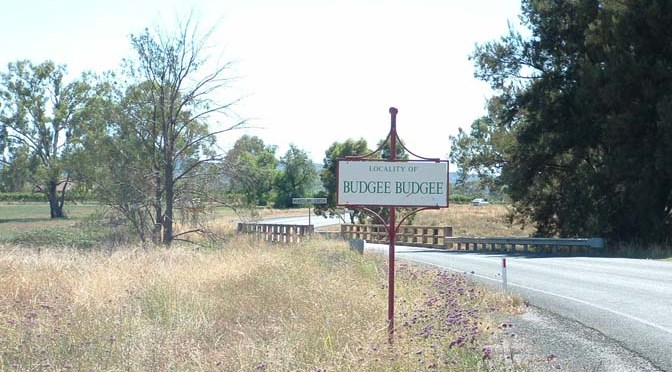
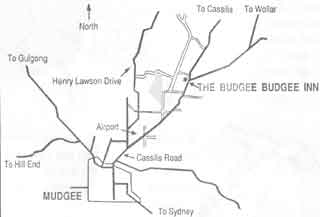
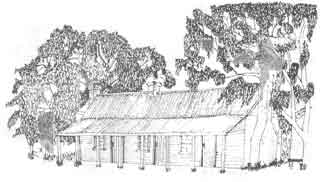

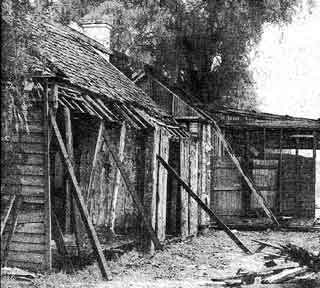
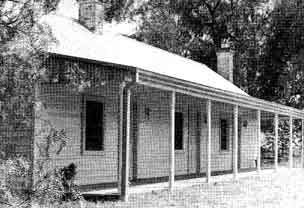
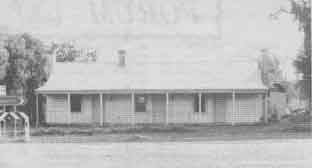

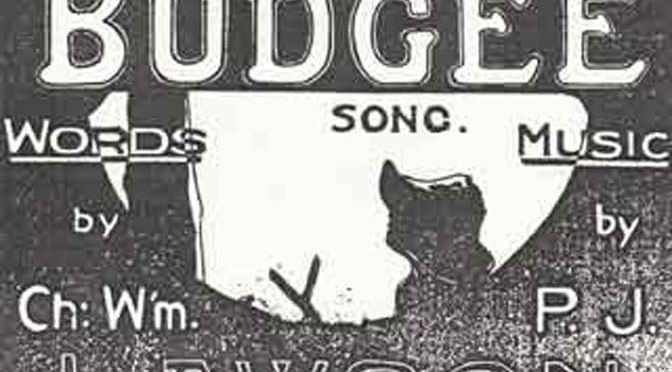
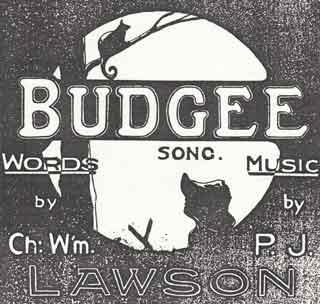
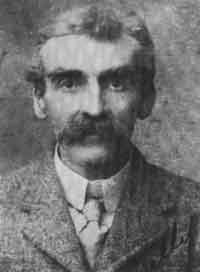
You must be logged in to post a comment.